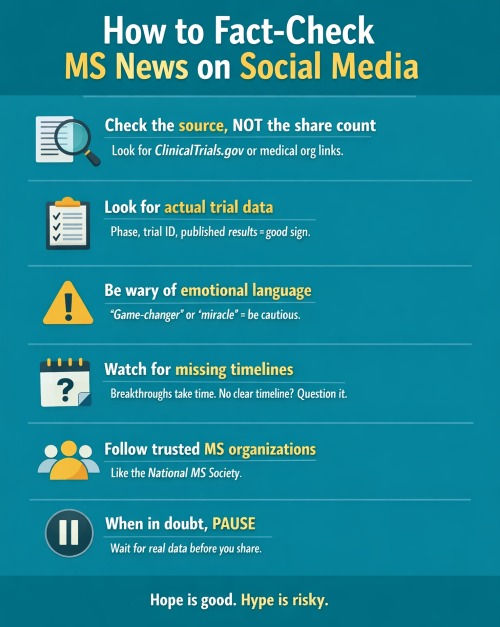Don’t Fall for the Hype: MS “Cures” That Sound Too Good to Be True Probably Are
- Joe Weber

- Jun 24, 2025
- 3 min read

Living with a chronic illness like MS means you're always on the lookout for something that might make life a little easier. A way to walk better. Sleep better. Think clearer. I get it—believe me, I’ve been there.
And when a new product pops up online promising to “fix” your symptoms with some miracle tech, it’s tempting to click, read, and wonder, What if it actually works?
But here’s the thing: if the first place you’re seeing it is on Facebook, it probably doesn’t.
Two MS “Cures” That Recently Hit My Feed
Just last night, two “breakthrough” products showed up in my feed—Tao Patch and Cadense shoes. Both promise magic. Neither passes the sniff test.
Tao Patch: Nanotech Light Therapy?
Let’s start with the Tao Patch. It supposedly uses nanotechnology-based light therapy to improve balance and energy. Sounds futuristic, right?
I looked into it, and honestly, I still have no clue how it’s supposed to work. More importantly—why has no doctor I’ve ever met with even heard of it? If something truly worked for a condition like MS, wouldn’t the neurologists be shouting it from the rooftops? Wouldn’t it be in clinical studies, journal articles, actual medical spaces?
Cadense Shoes: Slippery Promises
Then there are the Cadense shoes. These are targeted toward people with walking and balance issues (hello, MS crowd), using special nylon “pucks” in the soles that are supposed to adapt to your movements.
But let’s be real—a fancy sole isn’t going to fix a neurological problem. I don’t understand how people think that a shoe—no matter how innovative—is going to magically make your brain communicate better with your legs. That’s just not how MS works. My nerves aren’t misfiring because I’m wearing the wrong footwear.
And even if I did buy into the idea, the handful of real user reviews I’ve seen aren’t exactly inspiring confidence. People are slipping in them—literally. That’s not exactly the kind of feature I’m looking for in a shoe that’s supposed to help me walk better. Especially when it's very easy for me to fall already.
Be Skeptical, Stay Smart
Look, I know it’s tempting. I want something to work too. But just because it looks slick and has a heartwarming testimonial on Instagram doesn’t mean it’s legit. It’s easy to get sucked into the promise of a fast fix—especially when you’re tired, frustrated, and desperate for something new.
But here's your reminder: Not everything you see online is real. Do your research. Talk to your doctor. Be skeptical.
Even when you read something from me and think, "This doesn't sound right." Fact check me, I don't mind. I would much rather be proven wrong and I take down the bad information, than to leave it up for people to see.
A Final Thought
I write content for the internet. I know how easy it is to make something sound good. That’s why I’m always extra cautious when something shows up in my feed with a headline like “This Changed My Life with MS!”—unless it comes from a reputable source, with studies to back it up, and preferably some peer-reviewed data.
Miracle cures might make for great clickbait, but they’re rarely grounded in reality. MS is a complicated disease, and the solutions that actually help are usually the result of science, testing, and time—not nanotech stickers or slippery shoes.
Don’t Let False Hope Win
So before you spend your hard-earned money (or hope) on something new, ask questions. Ask your doctor. Ask people you trust. And above all, don’t believe everything you see on the internet—unless it’s a blog from someone who also has MS and is just trying to help you navigate the chaos. (Wink, wink.)
I'm also no stranger to fancy tech. The Cionic Neural Sleeve has been an amazing tool to help me be more mobile. But, that is backed by science and the medical community. My doctor is the one who suggested it. That's the kind of stuff I'm looking for.
Listen, do I wish I could snap my fingers or eat lettuce (yep, that’s a real thing I’ve seen on the internet) and MS would just go away? You bet. But that’s not going to happen, and I’m not about to let some company take advantage of people like me by promising false cures and false hope.




Comments